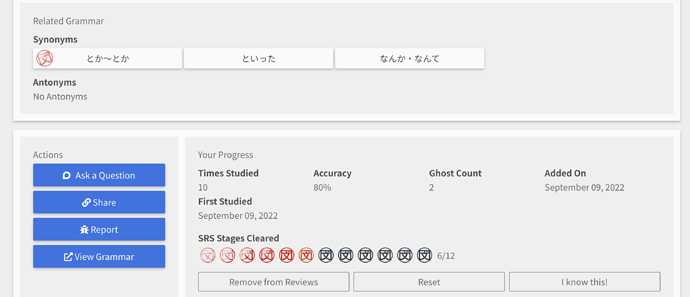I can for the love of god not understand the difference, and the reason for this is an example sentence from bunpro. Take a look at this.
I thought this one was kurai, because as far as I can understand, “I ate lunch around three o’clock” is an extent and not a span of time. As far as I understand, what bunpro means by calling gurai an extent, is that it is a specific point, whereas goro is broad, therefore a “span”. But apparently, this one is goro? I cannot understand this. What am I not understanding about the difference between these two grammar points?
EDIT: I wanna point out that, when I wrote kurai, it didn’t say it was wrong, but instead said “can you say it in another way?” or something along those lines. I’ve also noticed that whenever the right answer is goro, the word they highlight in blue is “around”, whereas, with kurai, that word is “about”. Maybe that’s made to differentiate the two, “around” being a sort of representation of a circumference or something, so “around three o’clock” would be any time around that time, which would make it a span, whereas the word “about” could be referencing something more specific, as “about” in this sense could mean: “on the subject of; concerning”, as the dictionary says. So maybe that’s it.
Can anyone confirm or deny this?




